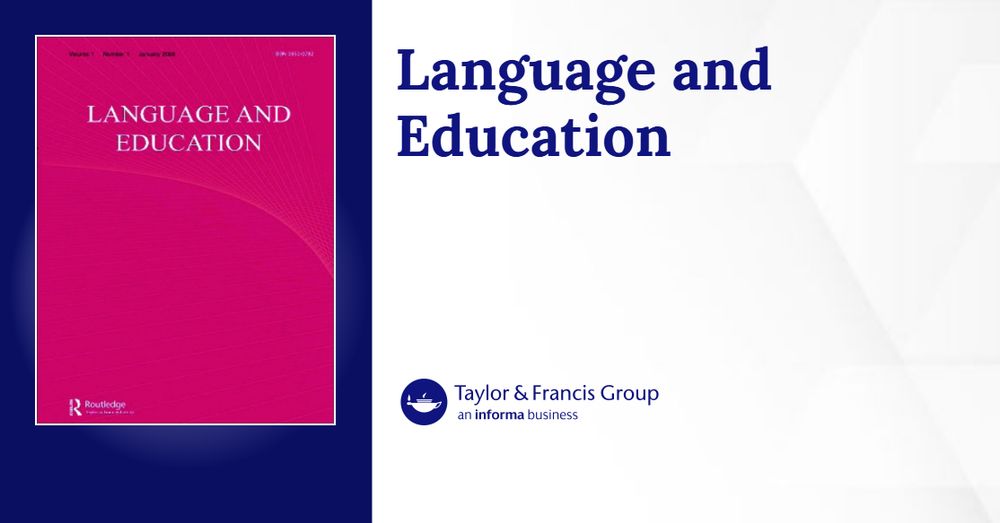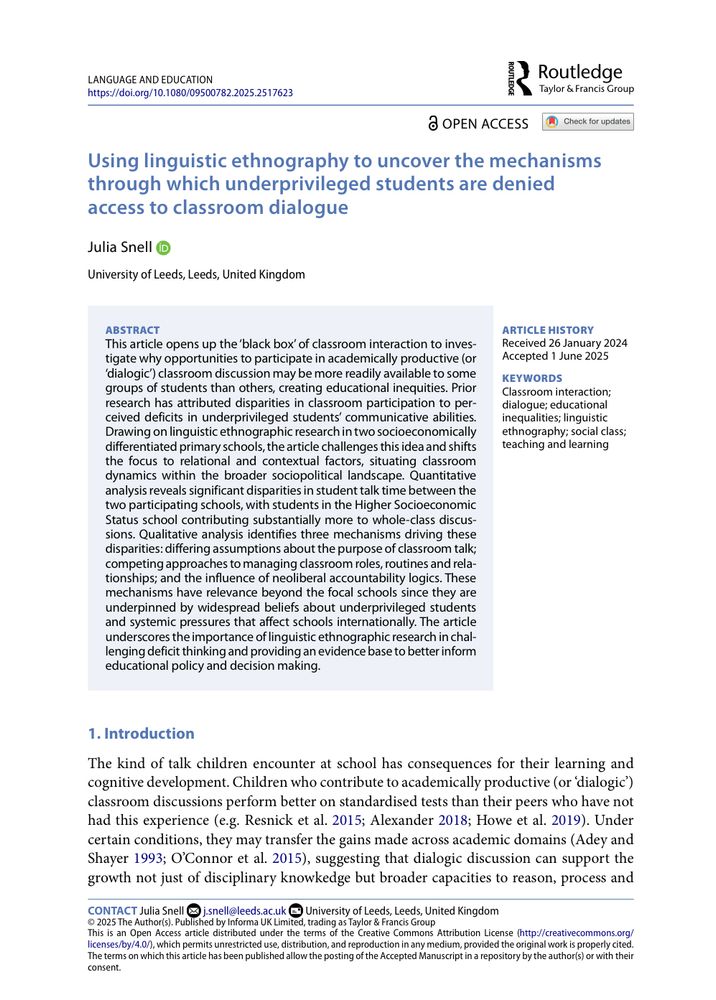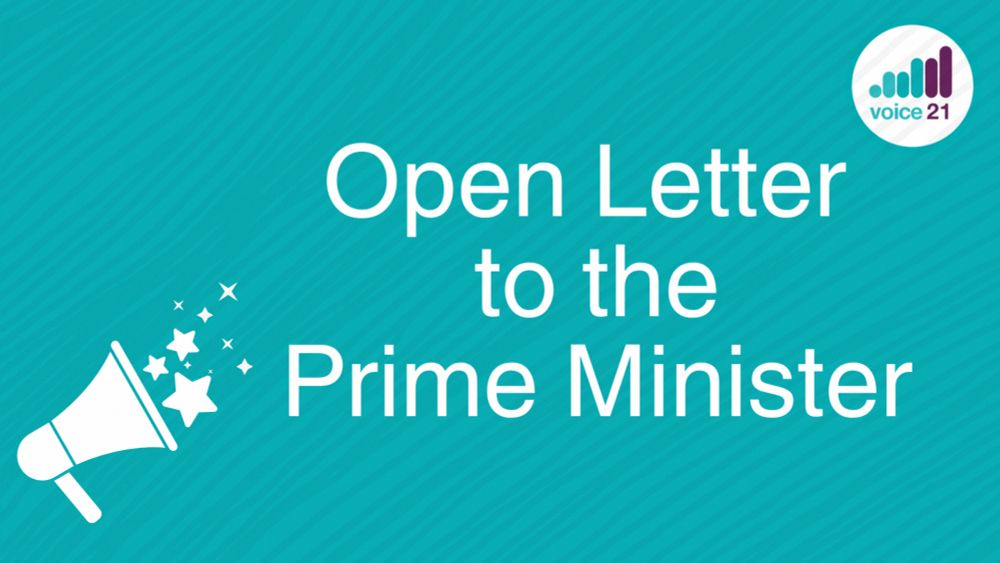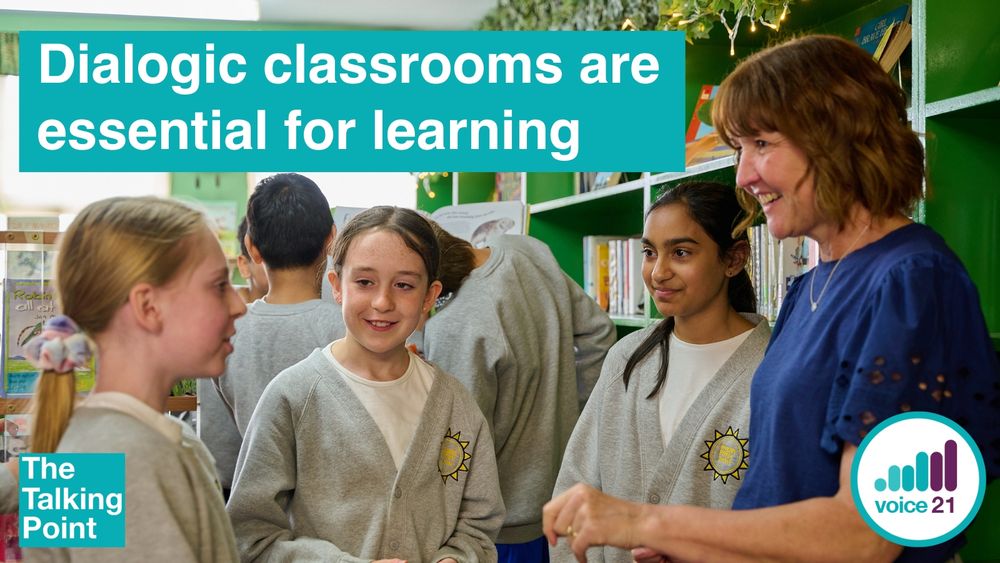Julia Snell
@snelljulia.bsky.social
550 followers
130 following
26 posts
Professor of Sociolinguists at the Uni. of Leeds, UK. Researching language, identity, education & inequality.
Posts
Media
Videos
Starter Packs
Pinned
Reposted by Julia Snell
Reposted by Julia Snell
Julia Snell
@snelljulia.bsky.social
· Jul 3
Julia Snell
@snelljulia.bsky.social
· Jul 2
Julia Snell
@snelljulia.bsky.social
· Jul 2
Julia Snell
@snelljulia.bsky.social
· Jul 2

Using linguistic ethnography to uncover the mechanisms through which underprivileged students are denied access to classroom dialogue
This article opens up the ‘black box’ of classroom interaction to investigate why opportunities to participate in academically productive (or ‘dialogic’) classroom discussion may be more readily av...
www.tandfonline.com
Julia Snell
@snelljulia.bsky.social
· Jul 2
Julia Snell
@snelljulia.bsky.social
· Jul 2
Julia Snell
@snelljulia.bsky.social
· Jul 2
Julia Snell
@snelljulia.bsky.social
· Jul 2
Julia Snell
@snelljulia.bsky.social
· Jul 2
Julia Snell
@snelljulia.bsky.social
· Jul 2
Julia Snell
@snelljulia.bsky.social
· Jul 2
Julia Snell
@snelljulia.bsky.social
· Jul 2
Julia Snell
@snelljulia.bsky.social
· Jul 2
Julia Snell
@snelljulia.bsky.social
· Jul 2
Julia Snell
@snelljulia.bsky.social
· Jul 2
Julia Snell
@snelljulia.bsky.social
· Jul 2
Julia Snell
@snelljulia.bsky.social
· Jul 2
Julia Snell
@snelljulia.bsky.social
· Jul 2
Julia Snell
@snelljulia.bsky.social
· Jul 2



